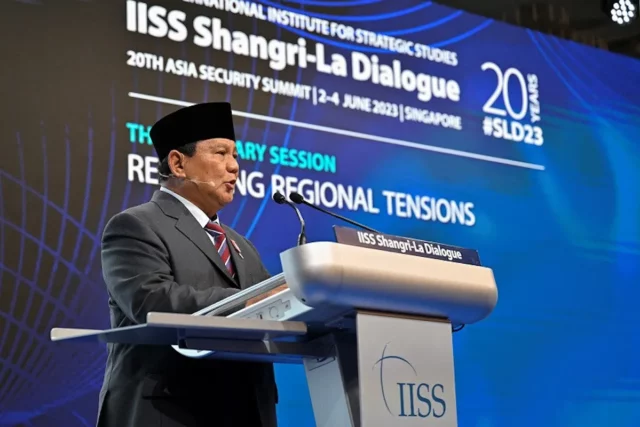As Indonesians head to the polls on Wednesday, the million-dollar question: can the country build on the 5% economic growth of the recent past to move from middle-income status to a fully developed one by 2045?
At an online discussion, Ilham Habibie, Chief Executive of Indonesia’s National Communication & Information Technology Council, believes all candidates for president, Prabowo Subianto, Anies Baswedan and Ganjar Pranowo, are focused on achieving this. “Indonesia has a vision of a ‘Golden Indonesia’ where it wants to become a developed nation by 2045. This is when were celebrate 100 years of Indonesian independence. All the candidates’ policies reflect how they will achieve this in their manifestos. This is the key priority for Indonesia.”
Habibie acknowledges achieving this will be no easy task. Currently, the country’s GDP per capita stands at between $4,000-5,000 with the goal to raise it to $12,000 from now until 2045. Economic growth must therefore rise to 7% requiring a major overhaul of the country’s industrialisation policy, especially with regard to the manufacturing sector.
Foreign Policy
On foreign policy, Habibie believes that while one could see a more active Indonesia under the new president, key foreign policy aims would not be abandoned. “Indonesia’s strict tenet regarding foreign policy is one of being a friend to all and this is not likely to change.”
But he noted that “Jokowi was largely uninterested in foreign policy following an ‘Indonesia First’ attitude in his first term and it was only in his second term that he took up foreign policy more seriously. But even then it was a more transactional ‘what can you do for us’ form of foreign policy. Ganjar is likely to follow this course, while Anes is the most interested in foreign affairs. He was educated in the US, speaks good English (something that is not a given in Indonesia) and has experience having been the governor of Jakarta. Prabowo is likely to continue the legacy of Jokowi but he has his own ideas which sometimes veer away from Indonesia’s official foreign policy stance. His idea of securing a buffer zone before negotiations between Russia and Ukraine was one such idea.”
Indonesia-India
India’s Ambassador to Indonesia, Sandeep Chakravorty said New Delhi and Jakarta were “playing a key role in bridging divides in the international system. This was seen in the Bali Declaration where both countries were able to devise a formulation that was acceptable to all. In this regard, there is respect for both India and Indonesia from all quarters.”
Asked if India was concerned about Jakarta’s close relationship with Beijing, Chakravorty dismissed it. “International relations are not a zero-sum game. Indonesia’s relationship with China is its own relationship and India’s relationship with Indonesia is different. I don’t think Indonesia getting closer to China does not mean we cannot develop our own relationship. Both countries have a neutral, free and active foreign policy. So, if Indonesia is developing relations with China it may be because China is offering them things that we do not. Having said that, I must also point out that we operate in different spaces.”
On the economic relationship, Chakravorty stated that some work needed to be done in that regard. “Indonesia’s democracy is important for us as it brings stability to the region. Indonesia has sizable investment in India but that has stagnated over the last few years. On the trade front, we are in the process of reviewing the Asean-India Trade Agreement which will remove bottlenecks that both countries face in exporting more to each other.”
















